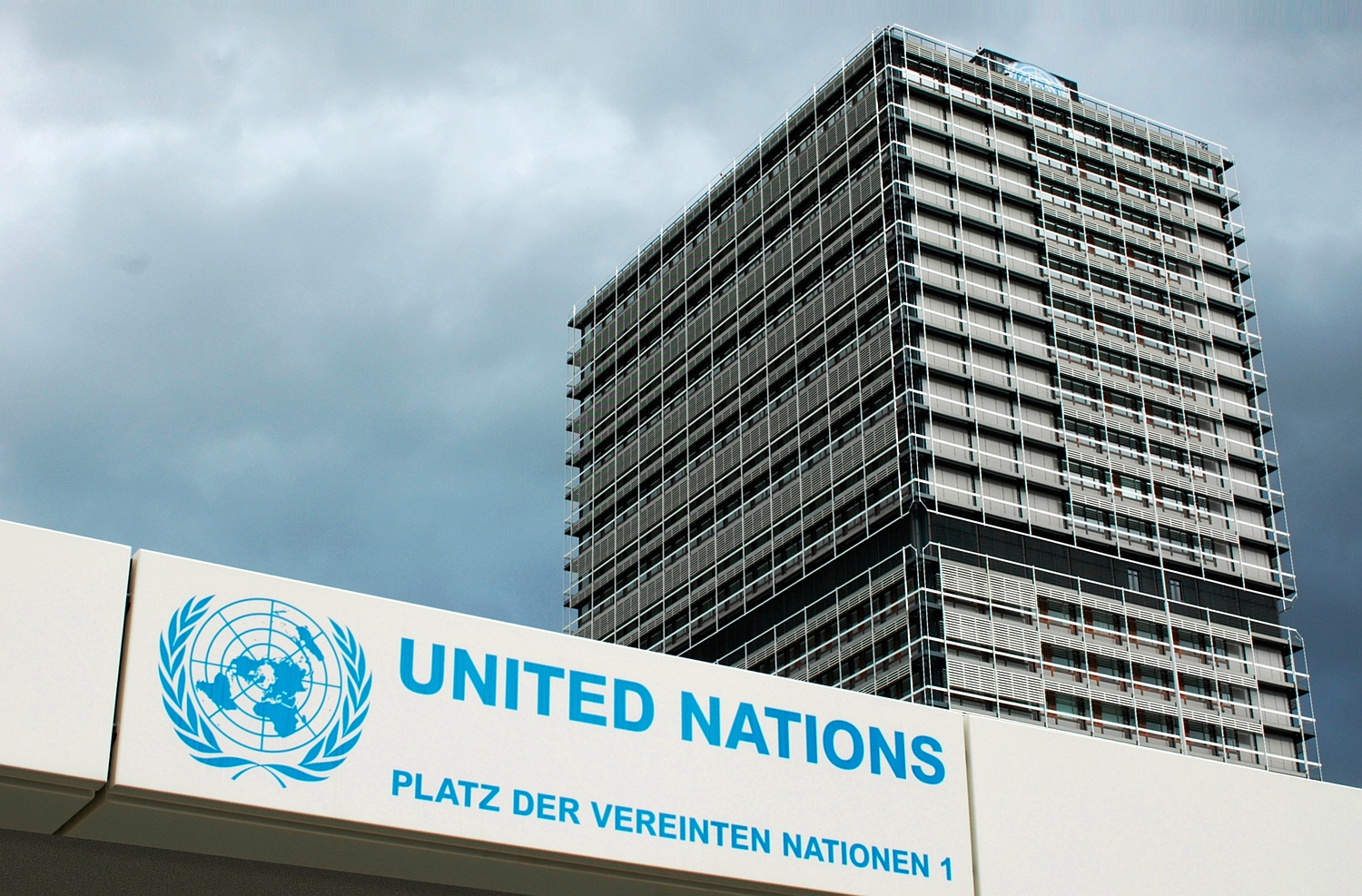The United Nations University (UNU) is a global think tank and teaching organisation and an autonomous institution of the United Nations (UN). It contributes to the achievement of the UN's overarching goals through research and education. Research results are used to provide national and international science-based policy advice. For example, the UNU developed evidence-based proposals for solutions to global problems of human survival, development and well-being, also with a view to the 2030 Agenda. The Federal Ministry of Education and Research (BMBF) provides basic funding for the UNU institutes based in Germany and supports further development. BMBF is supported by the International Bureau.

United Nations Campus Bonn © DLR / Sabine Breiderhoff
Content
Current Developments
On 1 March 2023, Professor Tshilidzi Marwala of South Africa has assumed office for a five-year term as Rector of UNU, which is headquartered in Tokyo.
UNU institutes in Germany are carrying out research on the nexus of sustainable management of water, soil, waste, energy, and geo-resources (UNU-FLORES) and on risks and adaptation related to environmental hazards and global change (UNU-EHS). Every year, UNU-EHS publishes the 'Interconnected Disaster Risks' report.
Structure
The UNU consists of 13 scientific institutes in 12 countries. In addition, there is a rectorate, a vice-rectorate and a liaison office at the UN and UNESCO. The UNU is headed by a Rector, who is based in Tokyo. There is also a 12-member UNU Council, which approves the UNU's work programme and budget. The UNU institutes cooperate locally with higher education and research institutions, e.g. in joint doctoral programmes, seminar series and master's degree programmes.
Cooperation
Three UNU institutes are located in Germany. They are funded by the Federal Ministry of Education and Research (BMBF), partly in co-funding with the respective federal states. The International Bureau follows the activities of the German institutes and supports the BMBF in managing the partnership. In addition, the International Bureau develops concepts for the further development of the cooperation.
UNU’s Vice Rectorate in Europe (ViE), based in Bonn, was founded in 2007 and coordinates UNU institutions in Europe and Africa. Its tasks is strategy development in the region, the establishment of new UNU institutions, the development and accreditation of joint study programs and degrees with local universities, and networking. UNU-ViE is the only Vice Rectorate of the UNU outside of Tokyo.
Dr Xiaomeng Shen has been UNU's Vice Rector since August 2020. The UNU-ViE has been funded by the BMBF with 1 million euros annually since its foundation in 2007.
The Institute for Environment and Human Security (UNU-EHS), based in Bonn, conducts research on risks and adaptation related to environmental hazards and global change, and promotes policies and programmes to reduce these risks. Together with the University of Bonn, the institute organises the Master's programme 'The Geography of Environmental Risks and Human Security'. In addition, UNU-EHS offers various projects for doctoral students and seminars. UNU-EHS is part of the Bonn Alliance for Sustainability Research.
Dr Xiaomeng Shen has been Vice-Rector of UNU and Director of UNU-EHS since August 2020. The Federal Ministry of Education and Research (BMBF) has been funding the UNU Institute together with the Ministry of Culture and Science of the State of North Rhine-Westphalia (MKW) since 2003.
The Institute for Integrated Management of Material Fluxes and of Resources (UNU-FLORES) was founded in Dresden in December 2012. Its research focuses on the sustainable use of resources such as water, soil and waste. The current framework for research activities is the 2030 Agenda for Sustainable Development with its 17 Sustainable Development Goals (SDGs). The institute regularly organises the 'Dresden Nexus Conference' – in 2022, this was held virtually on the topic of 'Biodiversity – Stewardship for Vital Resources'.
Professor Edeltraud Günther has headed the institute since September 2018. UNU-FLORES receives basic funding from the BMBF, the Saxon State Ministry for Science, Culture and Tourism (SMWK) and the Technical University of Dresden (TU Dresden). The annual funding amounts to approximately 2.1 million euros. The current funding agreement is valid until the end of 2024.







